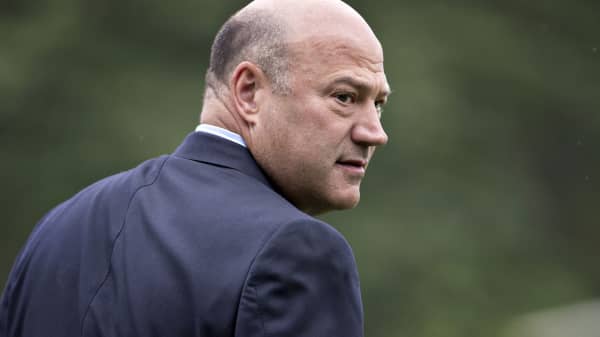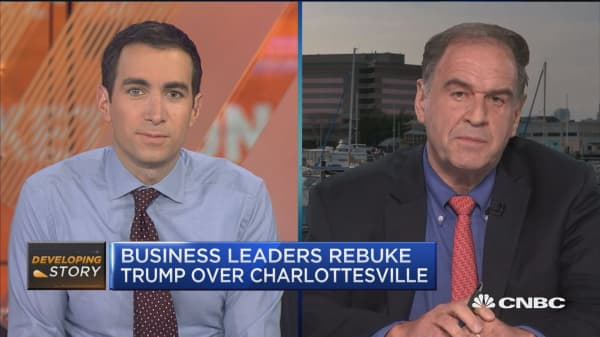The continuing controversy over President Donald Trump's response to the Charlottesville protests has produced one very intriguing development: It's made Gary Cohn the most important person in Washington, Wall Street, and maybe the entire country. In short, President Trump needs his chief economic adviser to stay on the job.
That's because if this administration wants to keep any kind of formal or informal policy support from American business and investment leaders, Cohn is the key to it all. That explains why Wall Street is so focused on Cohn and his job status right now.
It's important to note that there's no solid evidence Cohn is considering leaving for the same reasons so many CEOs resigned from the president's manufacturing council, or any other reason for that matter. But reports say Cohn was extremely upset by President Trump's response to Charlottesville. And another former administration official told Reuters that Cohn is, "worried about his reputation being trashed, which is much more valuable to him than anything else."
That makes a lot of people nervous. If Cohn leaves, it seems inevitable that his departure would cause a stock selloff and perhaps even "crash the markets" as Yale School of Management's Jeffrey Sonnefeld told CNBC on Wednesday.
That's a heck of a consequence Cohn has in his pocket not only for job protection but also job promotion. Indeed, the White House said on Thursday that National Economic Council Director Gary Cohn is "focused on his responsibilities...Any reports to the contrary are 100% false."






